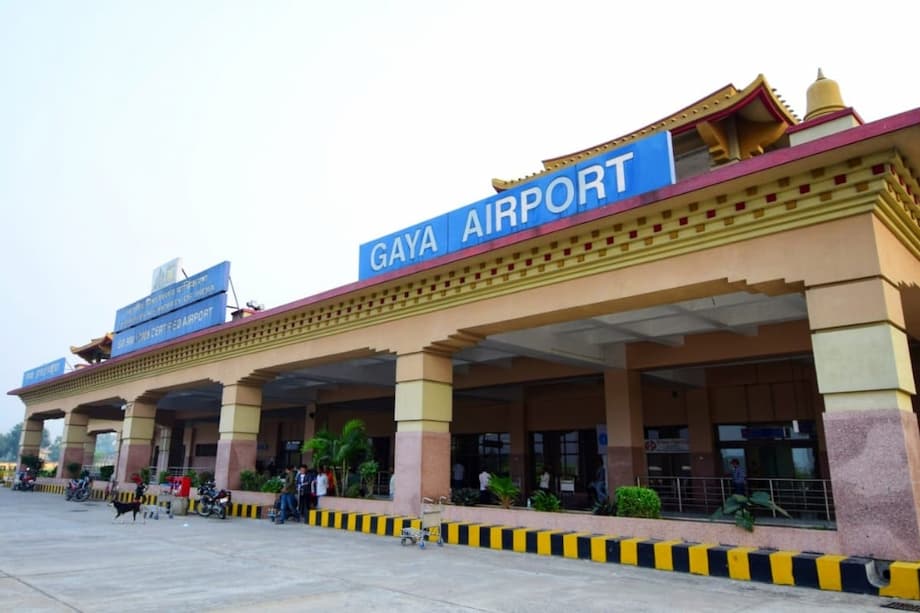India’s ‘GAY’ Airport Code: Why It Sparked Controversy and Why It Won’t Change
India’s Gaya International Airport, located in the ancient city of Gaya in Bihar, has found itself at the center of an unusual controversy. The airport’s three-letter code, ‘GAY’, assigned by the International Air Transport Association (IATA), has drawn complaints from a member of parliament who called it socially and culturally offensive—especially for a city revered as a major pilgrimage destination for Hindus and Buddhists. Despite these objections, India’s civil aviation ministry has made it clear: the code will not change.
- India’s ‘GAY’ Airport Code: Why It Sparked Controversy and Why It Won’t Change
- How Did the Controversy Begin?
- What Are IATA Airport Codes and How Are They Assigned?
- Why Did the Request to Change the Code Spark Backlash?
- How Do Locals and Travelers Feel About the Code?
- Gaya Is Not Alone: The World of Unusual Airport Codes
- What Does This Controversy Reveal About Indian Society?
- What Happens Next?
- In Summary
This story is about more than just three letters. It touches on global aviation practices, the politics of language, the rights of LGBTQ+ people in India, and the sometimes quirky world of airport codes. Here’s a comprehensive look at the controversy, the rules behind airport codes, and the broader implications for India and the world.
How Did the Controversy Begin?
The debate began when Bhim Singh, a member of the ruling Bharatiya Janata Party (BJP), raised the issue in the Rajya Sabha, India’s upper house of parliament. Singh argued that the code ‘GAY’ was “socially and culturally offensive and uncomfortable,” particularly for a city as spiritually significant as Gaya. He asked the government whether it had received complaints about the code and if it would consider changing it to something more “respectful and culturally appropriate.”
Gaya is one of India’s oldest and most sacred cities. It is a major pilgrimage center for Hindus, who come to perform ancestral rites, and for Buddhists, as nearby Bodh Gaya is the site where Gautama Buddha is believed to have attained enlightenment. The Mahabodhi Temple in Bodh Gaya is a UNESCO World Heritage site, drawing visitors from across the globe.
Singh’s concerns were not new. Requests to change the code have been raised before, including by Air India and even a parliamentary committee in 2022. But this time, the issue gained national and international attention, sparking debate not only about the code itself but about what it says about Indian society.
What Are IATA Airport Codes and How Are They Assigned?
To understand why the code is unlikely to change, it’s important to know how airport codes work. The International Air Transport Association (IATA), a global trade organization based in Montreal, Canada, assigns three-letter codes to airports worldwide. These codes are used for airline operations, ticketing, baggage handling, and logistics. For example, DEL stands for Delhi, BOM for Mumbai, and BLR for Bengaluru.
The codes are typically derived from the first three letters of the city or region’s name. In the case of Gaya, ‘GAY’ was the logical choice. The code has been in official use since September 30, 2011, when the first regular Air India flight began operating the Gaya-Varanasi-Delhi route. Since then, it has appeared on tickets, luggage tags, and flight schedules for both domestic and international flights, including those from Bangkok, Yangon, Thimphu, and charter flights from Japan and South Korea.
Once assigned, IATA codes are considered permanent and are only changed under exceptional circumstances—usually involving air safety concerns. This policy is outlined in IATA Resolution 763, which governs the assignment and alteration of location codes. The rationale is that these codes are deeply embedded in airline reservation systems, cargo tracking databases, and baggage-handling operations, making changes costly and logistically complex.
Can Airport Codes Be Changed for Social or Cultural Reasons?
Technically, airport codes can be changed, but it is extremely rare. IATA’s guidelines state that changes are only made for operational or safety reasons, such as confusion between similar codes that could lead to errors in air traffic control or baggage routing. Cultural or social sensitivities do not usually qualify.
There have been exceptions, but they are few and far between. For example, Baltimore’s airport code changed from BAL to BWI when the airport was renamed, and New York’s Idlewild Airport became JFK after President John F. Kennedy’s assassination. More recently, Kazakhstan’s capital changed its airport code from TSE to NQZ after a city renaming, but even then, the process took years and significant justification.
In the case of Gaya, the Indian government has received requests to change the code, including from Air India and the Airports Authority of India. However, IATA has consistently responded that the code does not meet the criteria for alteration. Minister of State for Civil Aviation Murlidhar Mohol reiterated this in parliament, stating:
“IATA location codes are considered permanent and are altered only under exceptional circumstances, usually involving air safety concerns.”
He added that the codes are primarily intended for commercial airline operations and are issued at the request of airline operators, not governments.
Why Did the Request to Change the Code Spark Backlash?
While some locals and travelers have expressed discomfort with the code, the request to change it has drawn sharp criticism from LGBTQ+ activists and allies. Many see the objection as rooted in homophobia rather than genuine cultural concern.
Arvind Narrain, a prominent LGBTQ rights advocate, argued that the word ‘gay’ is only offensive if one believes LGBTQ people are offensive. He pointed to the 2018 Supreme Court ruling that decriminalized homosexuality in India and affirmed the dignity and constitutional rights of queer citizens. Narrain stated:
“The member’s description of us as immoral strips the community of dignity. They need to educate themselves that as per the Supreme Court, what governs is not personal morality but constitutional morality. He should apologise to the community.”
Other activists echoed this sentiment, arguing that discomfort with the word ‘gay’ reflects deep-rooted prejudice, not any real cultural inappropriateness. Rajesh Srinivas, another LGBTQ activist, said there is nothing wrong with the code and that the focus should be on inclusion rather than avoidance.
Mental health and diversity experts also weighed in. Shanmathi Senthil Kumar, a counseling psychologist, said that framing the code as “unsafe” or “inappropriate” reinforces harmful stereotypes and sends a message that queer identities are something to be erased. Psychotherapist Vidya Dinakaran added that such moments should spark meaningful discussion, not avoidance, and that real progress comes from confronting stigma, not sweeping it under the rug.
How Do Locals and Travelers Feel About the Code?
Reactions among locals and travelers are mixed. Some, like Gaya-based fiction writer Sanjay Sahay, have admitted to feeling embarrassed when booking air tickets for their hometown. Others see the controversy as overblown, arguing that the code is simply a practical identifier with no deeper meaning.
For most travelers, the code has no operational impact. Gaya International Airport remains a functional domestic and international hub, especially important for Buddhist pilgrimage routes connecting India with countries like Sri Lanka, Thailand, Japan, and South Korea. The airport’s role in facilitating religious tourism and international connectivity is seen as far more significant than the semantics of its code.
Some commentators have suggested that the focus should be on improving airport infrastructure and connectivity rather than symbolic changes to codes. As one travel columnist put it, “Better to just lean into it: Fly SUX.”
Gaya Is Not Alone: The World of Unusual Airport Codes
The Gaya controversy is not unique. Around the world, several airports have codes that, in English or other languages, can seem odd, humorous, or even offensive. These codes are often the result of legacy naming systems or simply the first available three-letter combination at the time of registration.
Some of the most famous examples include:
- SUX – Sioux Gateway Airport, Sioux City, Iowa, USA
- FUK – Fukuoka Airport, Japan
- PEE – Perm International Airport, Russia
- POO – Pocos de Caldas Airport, Brazil
- LOL – Derby Field, Nevada, USA
- OMG – Omega Airport, Namibia
- DIE – Arrachart Airport, Madagascar
- BUM – Butler Memorial Airport, Missouri, USA
- EEK – Eek Airport, Alaska, USA
- YUM – Yuma International Airport, Arizona, USA
Some cities have tried to change their codes, often without success. Sioux City, for example, attempted to have SUX changed in the late 1990s and early 2000s but was denied. Eventually, the city embraced the code with tongue-in-cheek marketing campaigns urging travelers to “Fly SUX.”
IATA does ban some codes that are deemed explicitly offensive, such as SEX or GUN, but many others remain in use. The process for changing a code is lengthy, requires strong justification, and is rarely approved.
What Does This Controversy Reveal About Indian Society?
The debate over Gaya’s airport code has become a flashpoint for broader discussions about language, identity, and inclusion in India. While the government’s refusal to change the code is based on international aviation norms, the controversy has exposed lingering discomfort with LGBTQ+ identities in parts of Indian society.
India has made some progress on LGBTQ+ rights in recent years. The 2018 Supreme Court decision decriminalizing homosexuality was a landmark moment, and there have been symbolic gestures toward inclusion, such as expanding shelter programs for unhoused trans people. However, activists argue that meaningful reforms—such as legal recognition of same-sex marriage—remain elusive, and that incidents like the Gaya code controversy reveal how far the country still has to go in terms of social acceptance.
For many, the real issue is not the airport code, but the attitudes it has brought to the surface. As one LGBTQ+ advocate put it, “The controversy highlights a larger conversation India still needs to have—not about airport codes, but about acceptance.”
What Happens Next?
For now, the code ‘GAY’ will remain in place for Gaya International Airport. The government has made it clear that it has no authority to change the code and that IATA’s rules do not allow for alterations based on social or cultural sensitivities. Unless a compelling air safety issue arises, the code is here to stay.
The debate, however, is unlikely to disappear. As India continues to grapple with questions of identity, inclusion, and modernity, even something as seemingly mundane as an airport code can become a symbol of larger societal shifts.
In Summary
- India’s Gaya International Airport uses the IATA code ‘GAY’, which has sparked controversy after a lawmaker called it socially and culturally offensive.
- The Indian government has refused to request a change, citing IATA’s policy that codes are permanent and only altered for air safety reasons.
- LGBTQ+ activists and allies have criticized the objection as rooted in prejudice, arguing that the word ‘gay’ is not offensive and that the focus should be on inclusion.
- Airport codes like ‘GAY’ are not unique; many airports worldwide have unusual or humorous codes, and changes are rare and difficult.
- The controversy has highlighted broader issues of language, identity, and acceptance in Indian society, especially regarding LGBTQ+ rights.
- For now, the code remains unchanged, and the debate continues to reflect deeper societal conversations in India and beyond.












